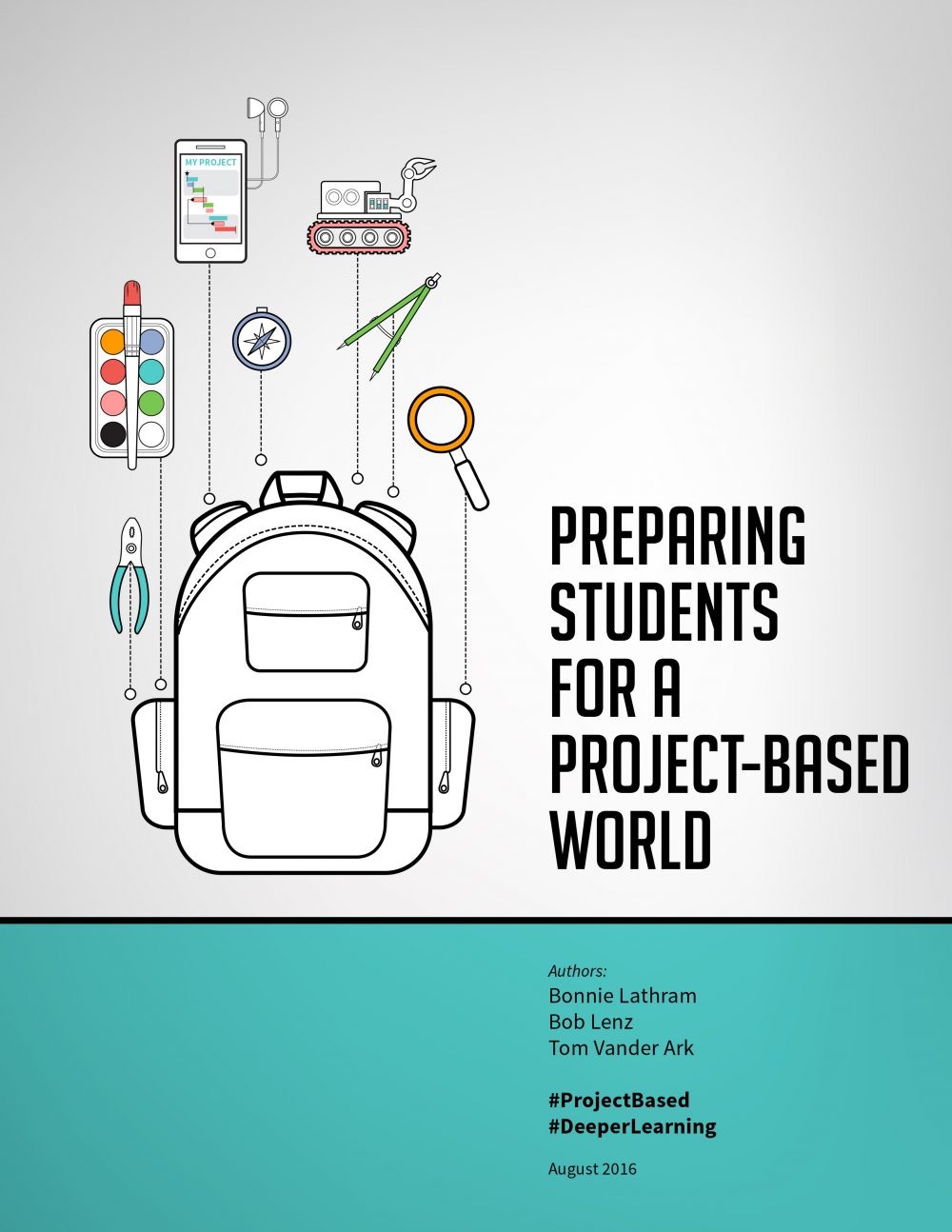Author Archive
Thursday, November 3rd, 2016

Why Blended Learning Is Effective by Kevin Nelson explains and extolls this type of learning which is trending, especially in schools where every student has a laptop or a tablet device. Be sure to share this with your network so everyone you know gets hip with this important innovation.
What is it?
- What is blended learning and why do so many people claim that it is much better than other types of education including face to face teaching and e-learning? These are the questions this article aims to answer. First of all, for those of you who are not familiar with the concept of blended learning: this type of education is a mix of traditional classroom education and web-based learning with the aid of Internet and all kinds of courses available online. The creators of blending education aim to take the best out of each learning style and thus, boost students’ performance and desire to study. So, why should one consider blended learning as a better choice? There are several reasons.
1. Students Get Personalized Instruction
- Since a part of blended learning is work in smaller groups, each student has a chance to receive the education that fits his needs. For instance, let’s say, Mr. Black is teaching Science. He creates video lectures and gives each of his students accesses. After student watch a video they take a test on the material. This will give Mr. Black a better understanding of difficulties each student faces even before they come to class. Preparing special personalized instruction for each student is what makes blended learning more efficient.
2. Students Can Study at Their Pace
- There is absolutely no rush. Students do not have to learn everything within the course of a lesson. If they still have questions, considering that they study at home, in class, or elsewhere in school, they can go over the material again and again until they master the content. This is not possible with the fixed pace of face-to-face classroom education. This method has a positive effect on students’ performance. Knowing that they are in charge of their study process encourages them to take their time and review the material properly.
3. A Teacher Gets More Individual Time with Students
- The idea of blended education is that once in the classroom students split up into small groups of up to eight people. And even though the class, in general, can be larger in size, teachers get more time with each group and students within these groups. The thing is that typically the class will be split up into four groups, two of which will work with computers, one will work with instructions and the last group will go to a “teacher’s station.” As groups rotate, each of them gets a chance to have individual time with a teacher, and a teacher has more chance to explain some difficult material in more detail to each and every student of the group.
4. This Education Saves You the Money
- Think of it this way: how much money will you save not having to buy all the textbooks! You can get all the material in electronic version or through your teacher’s videos. It is faster, cheaper and time-efficient.
5. It Saves Students’ Time
- Students can now save time, as they can study at home, at a coffee shop, on the school bus, elsewhere in school, or on their way to a family dinner. The only thing students need to have is Internet access and a mobile device to go to the class website, download instructions and get started. Students who learn fast no longer need to wait for the rest of the students to finish assignments. The pace is yours. So, it saves time.
6. Students Love It
- Let’s face it: no matter how much you support the traditional style of education, blended learning is fun. Students find it engaging and are more willing to study hard. Assignments are not seen as a boring activity they just need to get through, but rather like a game, and this is exactly what will keep an inquisitive mind keep going and not give up when difficulties come along.
7. It Is Very Flexible
- Usually when you think about education, somehow there is an image that immediately pops up in your head. It is an image of a thick tall wall that represents a system you cannot change or add a different shape to. It is you who has to adjust to it. Blended learning, however, allows you to study wherever you want and attend classes even if you are thousand of kilometers away from the school itself. This type of education is flexible.
- Blended education is a perfect combination you are destined to enjoy once you give it a try. So, if you still have doubts, I hope that these reasons explaining why it is better than any other type of learning showed you why this statement is, in fact, true.
Kevin Nelson
- Kevin from Los Angeles, California, started his career as a research analyst and has changed the sphere of activity to writing services and content marketing. Currently, Kevin works as a part-time writer at the OnlineWritingClass. In addition to writing, he spends a lot of time reading psychology and management literature searching for the keystones of motivation ideas. Feel free to connect with him on Facebook, Twitter (@Nelson81Kevin), Google+, Linkedin.
Posted in Guest Posts | Comments Off on Why Blended Learning is Effective by Kevin Nelson
Saturday, October 29th, 2016

Serious Challenges for School Leaders in 2017 by Sam Jones offers warnings and advice along with some additional valuable resources for anyone involved in education.
Introduction
- If you are at the head of a school going into 2017, you’re going to facing some serious challenges. These issues need to be overcome if your school is going to survive. But it’s not just schools that could be in trouble. Any educational platform could be affected by these problems and leaders need to be prepared. What type of issues am I talking about?
Tech, Students And Teachers
- Tech can be useful in the school environment for a variety of reasons. For instance, you can use an online school directory to keep everyone up to date and connected. It can be useful for making sure that different areas of school body aren’t segregated such as teachers, students and parents. But, there is an issue that we need to come to terms with when thinking about tech in schools. Your understanding of tech and the students understanding of tech is going to be different. Research shows that by middle age, most of us are already losing our grasp on technology. Essentially, this means the students are going to know more than us. The simple solution to this problem is to use that fact to our advantage. Let’s harness their minds and make sure we control but accept the ways they want to use tech to learn. It will benefit them and the teaching standards that we have in schools.
Fun With Funding
- It’s currently unclear what state the government will be in next year. However, you can bet that as always funding in education is going to be under severe constraint. This happens every year, and we need to start preparing for it now. School leaders need to know how to effectively cut costs without losing the higher standards of education. There are both large and small ways to do this. Almost every business is now looking at ways to use greener practices to save money. Like it or not, a school is a business, and it needs to be run like one. It might be worth in investing in ways to cut energy usage if it means costs will be lower. For instance, you may want to look into purchasing new solar panels for the roof of your school. I know what you’re thinking. How can we possibly afford that? Well, you can encourage parents to invest by explaining how it will benefit their children. You should also be price checking any supplies that you buy for your school.
Bigger Student Populations
- Gone are the days when you have a class of ten or fifteen students. Now, classes are typically three times that size, and this is a problem. Research shows that teachers can not successfully provide teaching to a class of more than thirty children. Some of the students will be missing out, and this will show through their quality of work. You must make sure that you are keeping class numbers low by hiring more teachers. Although this means excess costs for the school, it will drive performance levels higher. We have to remember that educating children must be the main goal, rather than saving money.
- These aren’t easy problems to solve. But we need to think about how to tackle them now. Otherwise, our children’s standard of schooling will be rapidly sliding downhill.
Posted in What can Dr. Doug do for you? | Comments Off on Serious Challenges for School Leaders in 2017 by Sam Jones
Friday, October 28th, 2016
All Tech Minded Deans Should Read These 7 Books – Being a Dean is no easy feat. There’s a lot of pressure put on you from all sides to make a difference in your role. It’s up to you how you go about defining yourself and that role at your school. If you want some help and guidance, these seven books reviewed by Mary Walton are a great place to start.
– Being a Dean is no easy feat. There’s a lot of pressure put on you from all sides to make a difference in your role. It’s up to you how you go about defining yourself and that role at your school. If you want some help and guidance, these seven books reviewed by Mary Walton from Santa Monica, CA are a great place to start. Follow her on Twitter at @marywalton27.
- As a Dean, you probably find that you’re often racing around trying to fix problems. Once you’ve put one fire out, there’s another one you have to contend with. It’s an exhausting process, but you don’t have to work like this. This book shows you how to look at your work in a different way, and become a coach and counselor for your staff. This way there will be far less crises to deal with on a day to day basis.
- If you become the head of a department, you’ve probably found that you’re deep in a situation that you’re really not trained for. You’re a professor, and you’re not equipped to deal with the thousands of problems that happen every day. This book uses real life examples to help you get to grips with this new role. “If I hadn’t read this book, I would have felt utterly lost. Thankfully, I now have the knowledge to approach any issue and solve it easily,” says Frank Muller, head of department at Assignment Help Service.
- Becoming a Dean is a cause for celebration, but it comes with its own set of challenges. With resources ever strained and new problems being created by an ever evolving student body, how do you cope? This book offers six distinct strategies to get you through.
- This book draws on real life experiences of over 50 current Deans, to truly understand what the role entails and what is needed of any Dean. Linda Sanders, a Dean herself, says “I was impressed that they drew from the experiences of so many people in the same position as me. I felt the advice given was really genuine.”
- A Dean often has to lead their school through changes, and that process can go one of two ways. If you want to enact positive changes that your staff can get behind, this is the book for you. “I felt that this book really understands the practicalities of being a Dean,” says Nina Davies, former dean.
-
No Dean can be fully prepared for their first day in their new role, but some prepping is highly useful. This book will lead you through what you need to know for your new job, and how to handle any challenges that are thrown at you.
- This book is the essential ‘how to’ guide for any department chair. “It’s helped me so much again and again,” says department head Roger Leaves from UK Admissions Service, “It has practical examples of almost any situation you’ll come across.” It’s a guide that you can dip into whenever the need arises, and you’re sure to use it again and again.
Posted in Guest Posts | Comments Off on All Tech Minded Deans Should Read These 7 Books by Mary Walton
Saturday, October 15th, 2016

Combining Fun and Education: The Importance of Museums by Vee Cecil explains why museums are important to society and why they should be a centerpiece of education at home and in school.
Museums Are Important
- Museums have been a staple of Western society for centuries. They hold the rarest, most invaluable, and important artifacts from both past and present. Though some people may brush history off as boring, there is far more to see when you visit a museum.
- Some museums contain hands-on exhibits that explain science to the layperson, others hold modern works of art, and you might even find one with an extensive collection of teacups. Regardless of the theme, museums are an important part of society. There are several compelling reasons to visit and support museums in your local area and around the world.
They Preserve Cultures
- With globalization, cultures are dying at an unprecedented rate, leaving their remains to museums. Without careful preservation of documents and artifacts, many of these cultures would be lost to history. With museums, these cultures can be remembered, preserved, and possibly even revived. With heritage programs, the information held by museums can help a group revive aspects of their culture that would have otherwise been lost. Check out The importance of preserving cultural artifacts: A look at the Metropolitan Museum of Art’s Islamic Wing by Thomas Campbell.
They Teach Kids to Be Excited About Learning
- For most kids, there is nothing more exciting during the school year than a class field trip. Trips to museums allow students to abandon the traditional, lecture-based learning, get some hands-on education, and see beautiful visual aids that would be impossible to replicate in a classroom, even as part of a video. Hands-on learning is critical to engaged learning, and even teachers may learn some tips and tricks to keeping their kids interested. Check out useful lesson plans here.
They Showcase New Ideas and Technology
- In art museums, patrons find themselves exposed to new, innovative ideas from modern artists alongside historic pieces for comparison. Science museums break down technologies, allowing the average person to grasp the complex ingenuity that goes into their everyday staples. Many museums even have apps, displaying their connection to the modern world. Exposure to new things and ideas is critical in order for a person to continue to grow and learn. Though school may end, learning should not. You can also check out six museum apps for virtual field trips.
They Are a Fun and Beneficial Option for Family Outings
- Family outings are usually kid-centric with parents sacrificing their own interest in order to please their kids. Museums, on the other hand, are interesting and fun for all involved. Children get to see their parents excited about learning, creating a positive example.
- Museums also expose kids to a number of different subjects, teaching them the importance of things like art, science, and cultural acceptance. Though a trip to a playground is positive for kids’ fitness, museums are one of the best family-friendly activities that work the mind and expand kids’ horizons.
- Museums are an extremely under-appreciated resource. They play a critical role in preserving important aspects of humanity including our art, our cultures, our past, our present, and our future. Though we have documented much of our time on this planet, the only way this history is accessible to the public is through the hard work of museums. So next time you’re thinking of something to do with your kids this weekend, look up your local museum. You might just be surprised by what you discover. Click her for 17 kid-friendly museums and hands-on attractions.
Vee Cecil
- Vee keeps busy by being a wellness coach, personal trainer and bootcamp instructor in Kentucky. She also recently launched blog where she shares her passion for health by writing about her favorite tips, activities and recipes. @vee_cecil
Posted in Guest Posts | Comments Off on Combining Fun and Education: The Importance of Museums by Vee Cecil
Monday, October 3rd, 2016

Preparing Students for a Project-Based World by Bonnie Lathram, Bob Lenz, and Tom Vander Ark spells out the rationale for introducing project-based learning as an excellent way to prepare students for college and careers. It is the first of three reports about the new economy and inequities in student preparation. The next two parts will deal with preparing teachers and students for a project-based classroom.
Introduction
- The new economy requires a lot from young people. The bar is higher and the rules have changed in five ways. 1. Anyone who can access the Internet can learn to code, build and app, and start a business. This makes competition much greater. 2. The pace of technological change requires continuous learning. 3. As robots take over routine tasks, non-routine work is organized into projects. 4. Soon 40% of workers will be freelance and people employed by companies will move frequently. 5. Value is produced by initiating and sustaining complex work applying design and problem-solving skills.
- As a result, we need to reimagine how we teach students and how we organize schools. Students need to use their own interests and passions to grow their skills, master core academic content, and learn how to collaborate with others. One way to do this is to give all students access to high-quality project-based learning.
The New Economy
- For most workers, a series of projects will mark their career. There is also an increase in gigs, which are short-term routine tasks requiring low-skills. The classic example here is Uber where anyone with a car and a drivers license can earn a modest income. Better paying jobs are just the opposite since they usually involve long-term projects, require much more skill, and pay much more. Today’s youth also has to beware of jobs subject to automation. The classic example here is tax preparation.
Inequity: Old and New
- Policy changes associated with No Child Left Behind and Race to the Top have not reduced gaps between black and white performance. Nine out of ten children from the bottom of the income ladder who graduate from college move to a higher economic bracket. Being poor, however, is an impediment to getting the education that can lift you out of poverty. Most of the jobs created since the last recession have gone to people with at least some college education. Higher college costs and stagnant wages have lowered the return on college investments so don’t go until you are ready and don’t leave without a degree.
A Project-Based World
- Technological and economic change results in a very different job market for students to face. There are six ways to prepare for a project-based world and it is vital that teachers facilitate all of them. 1. Look for real-world internships. 2. Get real-time feedback, not just grades. In your career you will get feedback so get ready for it. 3. Learn how to collaborate. 4. Project results need to be communicated so work on communication skills including public speaking. 5. Personalize your learning. This will involve applying the skills learned elsewhere. 6. Learn about project management and team leadership.
Deeper and Project-Based Learning
- Project-based learning is one way to support deeper learning outcomes. They should be demanding and require a public audience. Essential project design elements include: a focus on student learning goals and standards, meaningful problems and appropriate levels of challenge, an extended process, a real-world context, student voice and choice, time for reflection, opportunities to critique and revise, and a public presentation. This report includes exemplars using several project results.
- This chapter ends with several fallacies associated with traditional non-project-based education. These include: memorizing content is all that’s necessary, more homework increases rigor but PBL is not rigorous, and PBL only works for white middle class students. The authors claim that PBL allows students to learn and master content knowledge, demonstrate and apply knowledge and skills, and learn how to learn as they transfer knowledge to new and different contexts.
A Call For Action
- It’s clear that we need advocates in the education and business community to move forward on this vital issue. Do what you can to get this information into the hand of policy makers and engage them in conversations. Parents can also play a key role as advocates. The authors list ten elements necessary to make high-quality possible. They are: 1. Pedagogy – Combine PBL with personalized learning. 2. Accountability – Assign individual as well as team projects an make all students in a group accountable. 3. Integration – Projects should span disciplines. This may require some team teaching. 4. Badging – Students should receive badges to certify things like project management skills. 5. Voice – Students should be responsible for defining the scope and deliverables of their projects. 6. Assessment – Teachers should check in periodically to provide formative feedback and use a rubric to assess completed projects. 7. Exhibitions – Students should be able to present their work to a public audience. 8. Portfolios – Students should collect and manage artifacts in a portfolio as evidence of their learning. 9. Training – Teachers need significant training prior to implementing PBL. 10. Tech – Powerful tech tools should be available to students and teachers
The Authors
- The authors bios are included at the end of this document. Bonnie Lathram is a Director at Getting Smart where she leads large-scale education initiatives. Bob Lenz is the Executive Director of the Buck Institute for Education. Tom Vander Ark is CEO of Getting Smart and a partner at Learn Capital, an education venture fund. You can follow them on Twitter at @belathram (Bonnie) @pblbob (Bob) and @tvanderark (Tom).
Posted in Book Summaries, Education Books, Leadership Books | Comments Off on Preparing Students for a Project-Based World by Bonnie Lathram, Bob Lenz, and Tom Vander Ark









